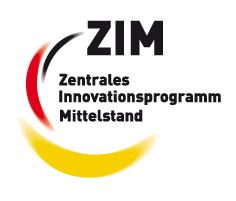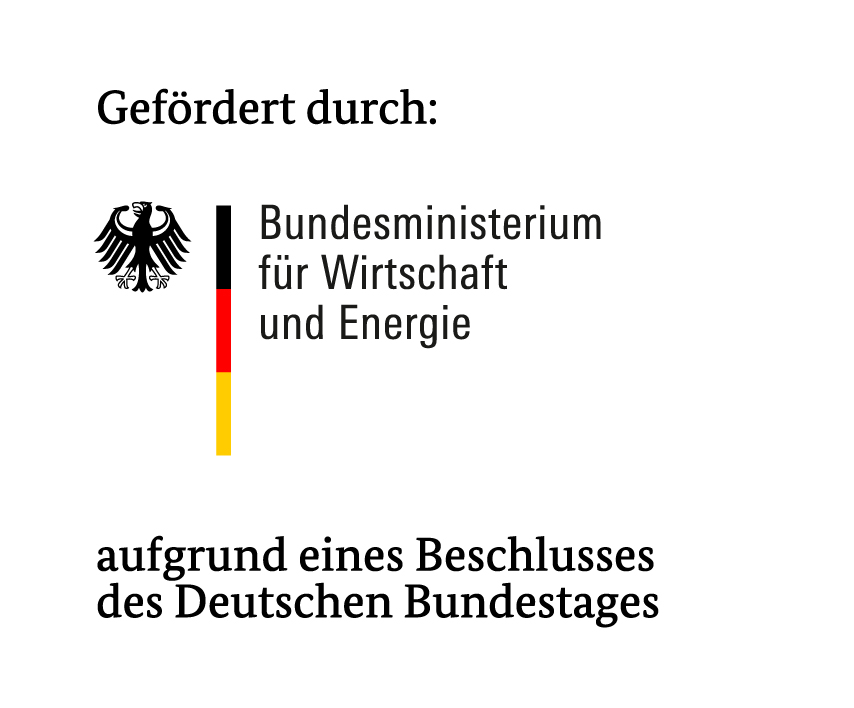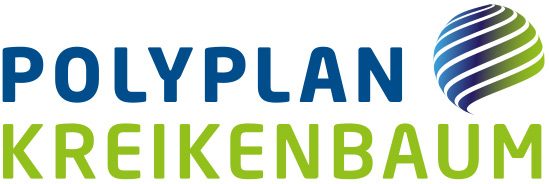Stands for a textile-based algae culture in shrimp plants and is a project from the BMWi funding initiative “Zentrales Innovationsprogramm Mittelstand” (Central Innovation Program for SMEs), or ZIM for short. This project involves three partners in an innovative approach to integrate micro-algae into a shrimp aquaculture system: the immobilization of specific algae species known for their attachment tendencies on a textile, can be used in a shrimp tank via a module.
The official project title is “Development of flow-through textile-based photobioreactors for integrated algae production in shrimp indoor aquaculture” (FKZ: ZF4058903 SK8).
A high availability of the algae nutrients can be assumed in indoor aquaculture systems, which is promoted by the constant flow around the textile supports and the algae settling on them, whose growth extracts these nutrients from the water and converts them into valuable biomass. For shrimp, some species of algae provide a live, potentially valuable food source that can provide them not only with protein, but also with immune-stimulating secondary compounds. Therefore, a positive effect of the consumption of these algae on the vitality and health of shrimp can be assumed and also proven in the scientific literature.
Positive effects on the stress levels were also expected from the design of the module itself due to the provision of rest and retreat zones and the possibilities to hold on to the textile supports. The shrimp actually stayed longer and more frequently on the textile supports in the modules and were observed grazing the algal cover.
The challenge was to balance the requirements of both the algae and the shrimp while maintaining the durability of the textile substrate. The module had to be usable under the conditions in the biofloc plant (nearly 30°C warm salt water enriched with the bioflocs (suspended solids)). This objective was achieved. A positive effect of the integrated algae could be observed with respect to the nitrite content of the water. The zootechnical data (growth and survival rates) did not show a clear and statistically significant improvement during the four-week observation period, but long-term positive effects are conceivable.
The project was funded by the BMWi and carried out with three partners until June 2021:
ASA Spezialenzyme GmbH, Wolfenbüttel
GMBU e.V., Gesellschaft zur Förderung von Medizin-, Bio- und Umwelttechnologien, Dresden
DITF, Deutsche Institute für Textil- und Faserforschung, Denkendorf



